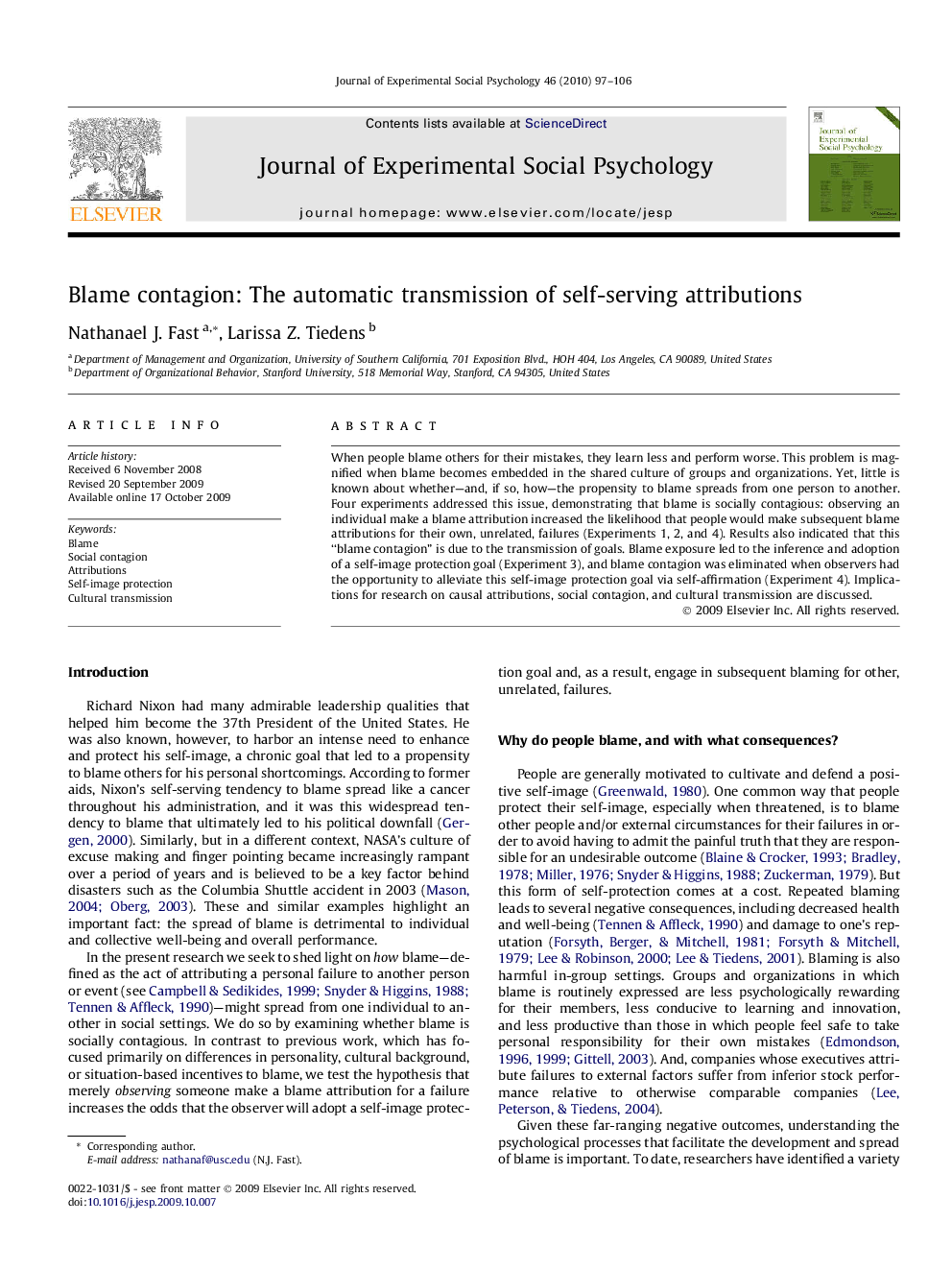| Article ID | Journal | Published Year | Pages | File Type |
|---|---|---|---|---|
| 947882 | Journal of Experimental Social Psychology | 2010 | 10 Pages |
When people blame others for their mistakes, they learn less and perform worse. This problem is magnified when blame becomes embedded in the shared culture of groups and organizations. Yet, little is known about whether—and, if so, how—the propensity to blame spreads from one person to another. Four experiments addressed this issue, demonstrating that blame is socially contagious: observing an individual make a blame attribution increased the likelihood that people would make subsequent blame attributions for their own, unrelated, failures (Experiments 1, 2, and 4). Results also indicated that this “blame contagion” is due to the transmission of goals. Blame exposure led to the inference and adoption of a self-image protection goal (Experiment 3), and blame contagion was eliminated when observers had the opportunity to alleviate this self-image protection goal via self-affirmation (Experiment 4). Implications for research on causal attributions, social contagion, and cultural transmission are discussed.
